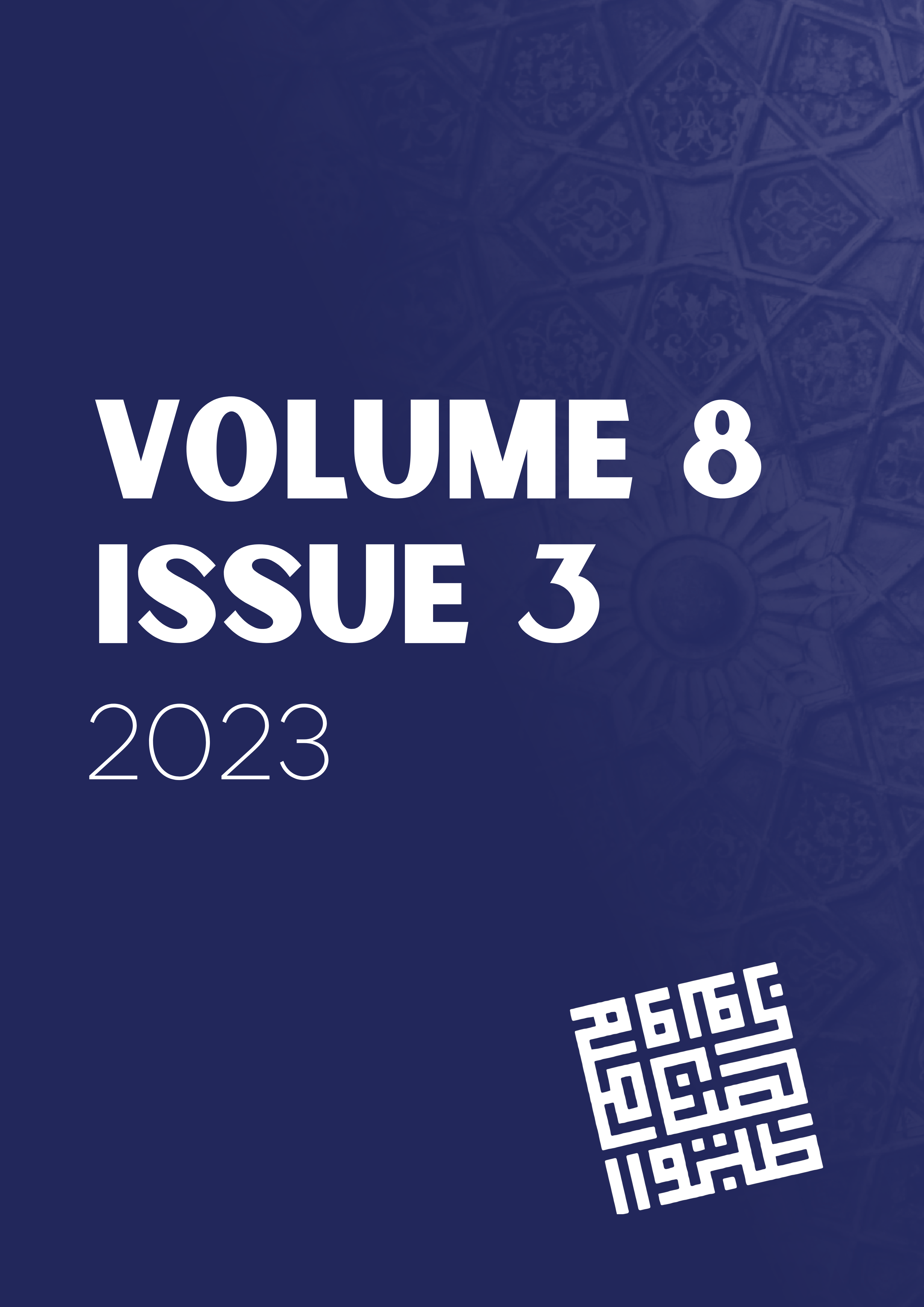Prison Life in the Eyes of Bediüzzaman Said Nursi and Aleksander Solzhenitsyn: A Comparative Study

Abstract
Christian and Islamic cultures of old abound with examples of atrocities committed against faithful people. Even in the modern era, many people have been unjustly imprisoned and deliberately subjected to persecution by authoritarian regimes. Said Nursi and Aleksander Solzhenitsyn are prominent examples of such poor treatment, even though each fought for their country and produced outstanding works, as long as breath was in them, for the welfare of their fellow citizens and co-religionists. By acting positively, despite every setback, they both fought against ignorance, sedition and lawlessness within the putative legal framework of their respective nations. One of the most important points this article argues is that these two scholars’ spiritual qualities allowed them to discern a hidden beauty, kindness and goodness even behind all kinds of injustices, however much pain and distress was inflicted on them during their incarceration. Thus, Nursi and Solzhenitsyn turned prison experiences into seeing every phenomenon as a reflection of God’s manifestations, exploration and rediscovering a religious and moral life. For Nursi and Solzhenitsyn, the sharp difference between sadness, distress, sickness and old age, on the one hand, and joy, peace, youth and health, on the other, almost disappears in their thinking after converting the prison into paradise.
Keywords
Prison, Spirituality, Risale-i Nur, Gulag, Said Nursi, Aleksander Solzhenitsyn
References
- Aydın, Mehmet. “The Problem of Theodicy in the Risale-i Nur.” In Islam at the Crossroads: On the Life and Thought of Bediuzzaman Said Nursi, edited by Ibrahim M. Abu-Rabiʿ, 215-28. Albany: State University of New York Press, 2003.
- Bensaid, Benaouda. “Spiritual and Moral Reform of Muslim Inmates: The Model of Said Nursi.” In The Companion to Said Nursi Studies, edited by Ian S. Markham and Zeynep Sayılgan, 305-21. Oregon: Pickwick Pub., 2017.
- Editorial. “Solzhenitsyn: Literary Prophet for the Human Conscience.” Journal of Church and State 16, no. 1 (1974): 5-9.
- Ericson, Edward. “The Gulag Archipelago a Generation Later.” Modern Age 44, no. 2 (2002): 147-61.
- Ericson, Edward, and Alexis Klimoff. The Soul and Barbed Wire: An Introduction to Solzhenitsyn. Wilmington: ISI Books, 2008.
- Frankl, Viktor E. Man’s Search for Meaning. New York: Washington Square Press, 1985.
- Fromm, Erich. Barışın Tenkiği ve Stratejisi [Technique and Strategy of Peace]. Translated by Fezi Emir and Kaan H. Ökten. Istanbul: Arıtan Pub., 1996.
- Haddad, Yvonne Yazbeck. “Ghurbah as Paradigm for Muslim Life: A Risale-i Nur Worldview.” In Islam at the Crossroads: On the Life and Thought of Bediuzzaman Said Nursi, edited by Ibrahim M. Abu-Rabiʿ, 237-54. Albany: State University of New York Press, 2003.
- Hunter, Ian. “Solzhenitsyn: The Last Prophet.” Catholic Insight (March 2003): 10-12.
- Jamat-Everett, Ayize. “Prison is a Hell for the Unbeliever.” In Islam at the Crossroads, edited by Ibrahim M. Abu-Rabiʿ, 115-28. Albany: State University of New York Press, 2003.
- Keskin, Zuleyha. “Attaining Inner Peace According to the Risale-i Nur Collection.” PhD diss., Australian Catholic University, 2015.
- Kroeker, Travis, and Bruce K. Ward. “Gulag Ethics: Russian and Mennonite Prison Memoirs from Siberia.” Journal of Mennonite Studies special issue (2012): 251-68.
- Landau, Iddo. “Viktor Frankl on all People’s Freedom to Find their Lives Meaningful.” Human Affairs 29 (2019): 379-86.
- Mahoney, Daniel. “Solzhenitsyn’s Red Wheel.” First Things May (2015): 43-44.
- Mahoney, Daniel. “The Continuing Relevance of Alexander Solzhenitsyn.” Society November/December (2003): 67-71.
- Mahoney, Daniel. “The Moral Witness of Aleksandr Solzhenitsyn.” First Things 196 (2009): 44-48.
- Matual, David. “The Gulag Archipelago: From Inferno to Paradiso.” Studies in 20th & 21st Century Literature 7, no. 1 (1982): 35-43.
- Nursi, Said. Asayı Musa [Staff of Moses]. Istanbul: RNK Pub., 2018.
- Nursi, Said. Lemalar [Flashes]. Istanbul: Şahdamar Pub, 2013.
- Nursi, Said. Sözler [Words]. Istanbul: Şahdamar, 2009.
- Nursi, Said. Şualar [Rays]. Istanbul: Şahdamar Pub., 2013.
- Nursi, Said. “Tarihçe-i Hayat.” Risale-i Nur Enstitüsü. Accessed April 12, 2023. http://www.risaleinurenstitusu.org/kulliyat/tarihce-i-hayat/birinci-kisim-ilk-hayati/55.
- Nursi, Said. The Rays. Translated by Şükran Vahide. Istanbul: Sözler, 1995.
- Nursi, Said. The Words. Translated by Şükran Vahide. Istanbul: Sözler Pub, 2008.
- O’Brien, John Conway. “Aleksandr I. Solzhenitsyn and the Evils of Soviet Communism.” International Journal of Social Economics 21 (1994): 14-30.
- Panichas, George A. “Review of Solzhenitsyn: The Moral Vision by Edward E. Ericson Jr.” Christianity and Literature 31, no. 1 (1981): 68-71.
- Peterson, Jordan B. Forward to The Gulag Archipelago, by Alexandr Solzhenitsyn, 1-6. Random House, 2018. Kindle edition.
- Sarıtoprak, Zeki. “Inner Peace Leading to Outer Peace.” American Baptist Historical Society 31, no. 3 (2012): 325-34.
- Solzhenitsyn, Aleksandr. “Detente Democracy.” Society November/December (1976): 14-34.
- Solzhenitsyn, Aleksandr. The Gulag Archipelago (1918-1956): An Experiment in Literary Investigation I-II. Translated by Thomas P. Whitney. Sydney: Book Club Associates, 1974.
- Turner, Colin. The Qur’an Revealed: A Critical Analysis of Said Nursi's Epistles of Light. Berlin: Gerlach Press, 2013.
- Vahide, Şükran. “A Chronology of Said Nursi’s Life.” In Islam at the Crossroads: On the Life and Thought of Bediuzzaman Said Nursi, edited by Ibrahim M. Abu-Rabiʿ, xvii-xxiv. Albany: State University of New York Press, 2003.
- Zengin, Sabri. “Bediüzzaman’ın Hapishanede Yazdığı Mektuplarla Talebelerinin Cemaat Şuurunu Takviyesi” [Bediuzzaman’s Strengthening of his Students’ Community Consciousness with the Letters he Wrote in Prison]. Katre International Human Studies Journal 11 (2021): 137-70.